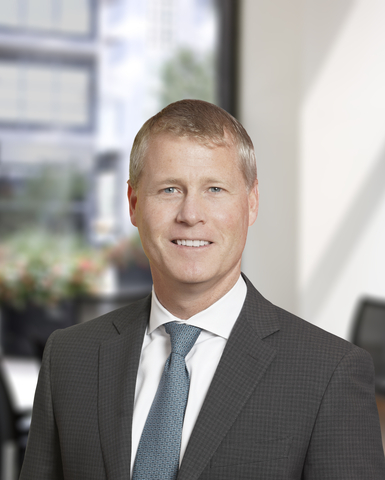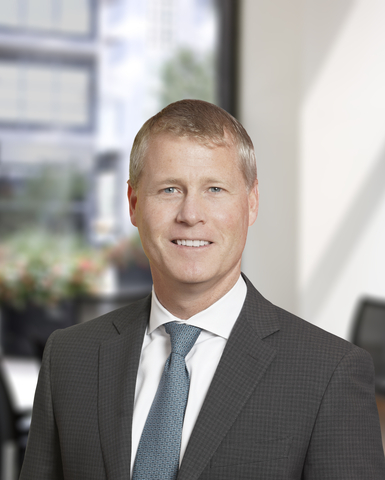WESTLAKE, Texas--(BUSINESS WIRE)--Almost three-quarters of Americans (73%) say their personal values guide how they make life decisions more today than they did two years ago, and nearly an equal number (69%) say that supporting causes they care most about are a top consideration when it comes to their financial decisions, according to Schwab’s sixth annual Modern Wealth Survey, an examination of how Americans think about saving, spending, investing and wealth.
When asked which personal values are their biggest motivators, Americans prioritize doing what’s best for others, including the environment and the greater good as well as their family and friends, followed by saving more and reducing unnecessary spending. These values drive how Americans spend and invest their money and also impact how they think about employment.
“It’s a longer-term trend, but especially after the events of the past two years, Americans are thinking a lot about how their spending, saving and investing align with their personal situations and preferences, including the issues and causes they care most about,” said Jonathan Craig, Managing Director, Head of Investor Services & Marketing at Charles Schwab. “Financial services institutions need to help people invest in line with their passions, preferences and beliefs, while recognizing that those will differ by individual.”
Values-Driven Spending & Investing
More than eight in 10 Americans (82%) agree that their personal values play an important role in how they manage their finances, adding to the long list of factors Americans weigh when making purchases. Personal values rank third on this list, just after price and product features, with almost eight in 10 Americans (79%) saying they try to use their purchasing power to support brands that are aligned with their beliefs.
Looking ahead, seven in 10 Americans say they are likely to change their lifestyles in the next 12 months to have a more positive impact on the world. More than half say they intend to shop local (58%), reduce their use of plastic bags (55%) and resell or donate clothing (54%).
Americans are also prioritizing their values when investing, according to Schwab’s survey. Almost three quarters of American investors (73%) agree that their values guide their investment choices and most (69%) say they invest in companies that align with their personal values. When looking at the factors that influence investing decisions, a company’s reputation (91%) and its corporate values (81%) are almost as important as more traditional factors like a company’s performance (96%) and its stock price (93%). As personal beliefs and interests become more important, many investors (84%) are also interested in having a more personalized investment portfolio.
While making values-based decisions is growing in popularity across all generations, it is even more pronounced among younger Americans, particularly Generation Z:
|
All |
Gen Z |
Millennials |
Gen X |
Boomers |
My personal values guide how I make life decisions more today than they did two years ago |
73% |
82% |
79% |
70% |
64% |
I am likely to change my lifestyle in the next year to have a positive impact on the world |
70% |
79% |
74% |
71% |
57% |
My personal values guide my investment choices |
73% |
82% |
75% |
73% |
68% |
I invest in companies that align with my personal values |
69% |
77% |
73% |
69% |
63% |
Prioritizing Values in the Workplace
This values-centered mindset extends to how Americans think about employment. Nearly nine in 10 American workers say that it is important for them to feel fulfilled by their work (89%) and to have colleagues who respect their personal values (85%). More than eight in 10 (84%) say that their values guide how they manage their career with almost two-thirds (63%) saying they chose their current employer based on its values.
As many as 59% of those surveyed say they would accept a lower salary to work for a company that better represents their personal values or interests. What’s more, nearly half of American workers (43%) are interested in changing employers over the next 12 months, with Gen Z even more likely to make a move (65%).
Wealth in 2022
As Americans reflect on what money means to them personally, Schwab’s survey shows that ‘freedom’ (42%) tops the list, followed by ‘flexibility’ (23%) and ‘opportunity’ (18%).
Americans also raised the bar again for what it takes to be “wealthy” and feel “financially comfortable” in 2022:
|
2018 |
2019 |
2020 (pre-pandemic) |
2021 |
2022 |
Average net worth it takes to be “wealthy” |
$2.4 million |
$2.3 million |
$2.6 million |
$1.9 million |
$2.2 million |
Average net worth it takes to be “financially comfortable” |
$1.4 million |
$1.1 million |
$934,000 |
$624,000 |
$774,000 |
“Investing and planning tools that help people personalize how they invest have never been more accessible,” said Rob Williams, CFP®, Managing Director of Financial Planning and Wealth Management at Charles Schwab. “In a recent survey of Schwab clients, nearly a quarter say they’re already aligning their investments with values and causes that are important to them, while another 20 percent say they’re interested in making the shift. With this trend growing, we’re helping more clients meet their evolving needs every day.”
About the Modern Wealth Survey
The online survey was conducted by Logica Research from February 8, 2022 to February 27, 2022, among a national sample of 1,000 Americans aged 21 to 75. Quotas were set to balance the national sample on key demographic variables. Detailed results can be found here.
About the Schwab Retail Client Sentiment Survey
This data is collected by Schwab quarterly via an online survey of clients with retail assets of at least $2,000. There is oversampling to achieve adequate sample sizes for sub-group analysis, and then application of a weighting scheme to create a total respondent population that is representative of Schwab’s client base. Q1 study was fielded at the beginning of the quarter: January 5-16, 2022. Detailed results can be found here.
About Charles Schwab
At Charles Schwab we believe in the power of investing to help individuals create a better tomorrow. We have a history of challenging the status quo in our industry, innovating in ways that benefit investors and the advisors and employers who serve them, and championing our clients’ goals with passion and integrity.
More information is available at www.aboutschwab.com. Follow us on Twitter, Facebook, YouTube and LinkedIn.
Disclosures
The Charles Schwab Corporation (NYSE: SCHW) is a leading provider of financial services, with 33.6 million active brokerage accounts, 2.2 million corporate retirement plan participants, 1.6 million banking accounts, and approximately $7.86 trillion in client assets as of March 31, 2022. Through its operating subsidiaries, the company provides a full range of wealth management, securities brokerage, banking, asset management, custody, and financial advisory services to individual investors and independent investment advisors. Its broker-dealer subsidiaries, Charles Schwab & Co., Inc., TD Ameritrade, Inc., and TD Ameritrade Clearing, Inc., (members SIPC, https://www.sipc.org), and their affiliates offer a complete range of investment services and products including an extensive selection of mutual funds; financial planning and investment advice; retirement plan and equity compensation plan services; referrals to independent, fee-based investment advisors; and custodial, operational and trading support for independent, fee-based investment advisors through Schwab Advisor Services. Its primary banking subsidiary, Charles Schwab Bank, SSB (member FDIC and an Equal Housing Lender), provides banking and lending services and products. More information is available at https://www.aboutschwab.com.
TD Ameritrade, Inc. and TD Ameritrade Clearing, Inc. are separate but affiliated companies and subsidiaries of TD Ameritrade Holding Corporation. TD Ameritrade Holding Corporation is a wholly owned subsidiary of The Charles Schwab Corporation. TD Ameritrade is a trademark jointly owned by TD Ameritrade IP Company, Inc. and The Toronto-Dominion Bank.
Brokerage Products: Not FDIC Insured • No Bank Guarantee • May Lose Value
(0522-2C7K)




